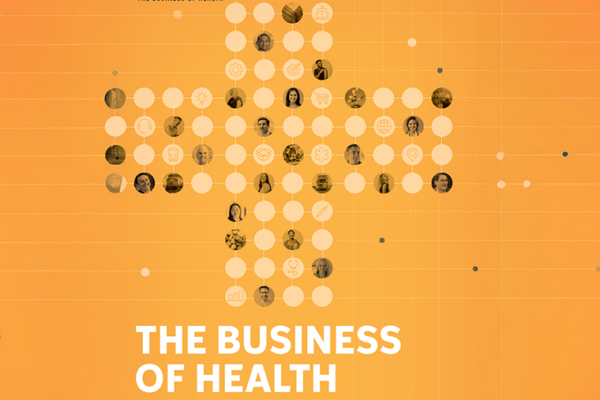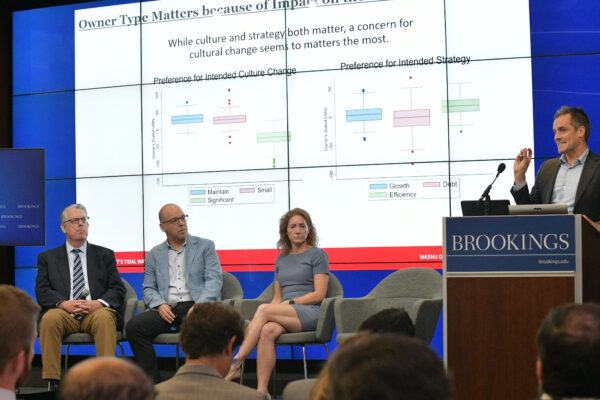Artificial intelligence is seeping into daily life at an accelerated rate, curating what individuals see on social media and internet searches, vetting job applications, helping doctors make medical decisions and even deciding who should get a home mortgage.

Regarding the latter, Vanessa Perry, MBA ’90, is acutely aware of what that can portend for consumers — particularly first-time borrowers. Perry now serves as the interim dean of the George Washington University School of Business, where she is also vice dean for strategy and a professor of marketing, strategic management and public policy.
Perry shared her measured take with the Senate Subcommittee on Housing, Transportation and Community Development in a hearing devoted to artificial intelligence and housing last year. While historic discrimination patterns and inequalities can undermine the fairness of AI models in the mortgage industries, Perry says they can also bring efficiencies to the mortgage evaluation process and at times be more objective than human evaluators. “One of my first published articles looked at automated underwriting — essentially an early version of AI,” she says. “And we found that the AI-driven system was fairer and more consistent to borrowers, including those from historically underrepresented groups.”
Mortgage policy may be complex and arcane, but Perry emphasizes the benefits of home ownership are clear — one of the reasons for her deep interest in the sector. Beyond even the financial boost of increased capital to leverage, homeowners typically enjoy access to better educational opportunities, health care and more.
One obstacle first-time borrowers often face to obtaining a mortgage is a thin credit history. A consumer seeking a mortgage for a new home may be a good candidate for the loan but have no track record with major credit bureaus. “With AI, there’s a broader range of data that can be incorporated,” she says. “You don’t have to have a credit score, a credit card or a car loan, or anything that would bring you into the traditional credit system.
“That’s one example of the kind of advance that occurs because we have more data, and thanks to more sophisticated algorithms we can look more effectively at combinations of data and alternatives to factor in. Without using these AI tools, we didn’t have the computing power or the data access to do those things.”
While Perry has spent the majority of her career in academia, she also has worked extensively in the public sector, gaining a nuanced understanding of the nuts and bolts of how policy ideas get implemented and how they affect consumers. Soon after completing her MBA at WashU, Perry did a four-year stint as a financial analyst at the Federal Home Loan Mortgage Corporation, aka Freddie Mac. “I absolutely fell in love with my first set of assignments analyzing Freddie Mac’s affordable housing purchases,” she says.
Later, while at the Consumer Finance Protection Bureau, she was deeply involved in the agency’s “Know Before You Owe” initiative, creating a streamlined set of notices to help potential borrowers understand the terms of a mortgage. “It’s a great idea in principle, but in practice is much more complicated,” Perry says. “It’s really hard to simplify 27 separate pieces of information that are required by statute.”
Perry says her scholarship and work in government have reinforced each other. “All of my research has been intended to inform policymakers,” she says. “In the classroom, understanding some of the limitations of policy has made me more effective because I can tell students, ‘Yes, that sounds great, but here’s why that’s not happening in the halls of our government and why it can’t.’”
Despite the dual nature of Perry’s career, the academy has always been her home. “My mother will tell you that as a child I used to line up my stuffed animals and give them lectures,” she says. “I’ve become a better professor because of the opportunities I’ve had to work in regulatory space, but they’ve been intentionally temporary because I’ve always been happy to be back on campus.”



